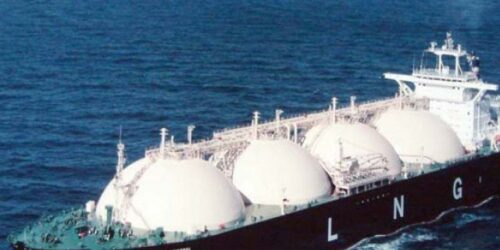The state-run Pakistan LNG Limited (PLL) on Friday received yet another set of most expensive bids for two cargoes of liquefied natural gas (LNG) for delivery in third and last week of the current month.
Earlier this week, PLL had invited emergency bids to make up for the sudden gas shortage caused by default on the part of two long-term suppliers — ENI of Italy and commodity trader Gunvor — and sought bids for two replacement cargoes for November 19-20 and November 26-27 latest by November 5 (Friday).
This was the shortest response time (less than three days) given by PLL for bids under the most urgent delivery schedule.
By the deadline, PLL received a total of five bids from three bidders for two cargoes. For November 19-20 delivery window, Vitol Bahrain was evaluated by the PLL as the lowest bidder at $29.8966 per million British thermal unit (mmbtu) followed by $30.05 per mmbtu of Qatar Petroleum Trading.
For the second delivery window of November 26-27, Qatar Petroleum Trading turned out to be lowest evaluated bidder at bid price of $30.65 per mmbtu, followed by $30.96 and $31.0566 per mmbtu of Total Energies and Vitol Bahrain, respectively.
The PLL did not immediately take a decision whether or not to accept the bids. It is, however, expected to accept both the lowest bids in view of major supply disruption in high demand season and much cheaper prices of existing seven cargoes from long-term Qatar deal that would help improve the overall basket price.
The PLL is also facing a supply shortfall of about 385 million cubic feet per day (mmcfd) in December and 240 to 275 mmcfd in January and February following non-availability of LNG cargoes amid historically high international market. It has sought bids from private sector parties to use this surplus capacity for which it could not arrange its own cargoes.
The emergency tender was necessitated by two LNG suppliers — Gunvor and ENI — declining to meet their contractual obligations to supply one cargo each in November, leaving authorities in a state of shock. The government is already struggling to meet demand amid lower than required cargoes — nine instead of 12-13 — in peak winter.
The tenders required typical cargoes of 140,000 cubic meters each (about 100mmcfd each).
Pakistan State Oil had already gone for additional furnace oil (FO) tenders for 160,000-170,000 tonnes to reinforce current FO stocks of around 350,000 tonnes to meet power sector demand for 15 to 20 days. The electricity consumers would have to pay for even higher fuel costs on top of already expensive monthly fuel cost adjustments that stood at Rs1.95 per unit in October and Rs2.51 per unit in November.
The long-term supply contractors Gunvor and ENI had backed out of their commitments as global prices went up. The traders chose to pay the penalty for default and go for higher profits in spot market. ENI has a 15-year contract with PLL at 11.95 per cent of Brent while Gunvor had five-year contract at 11.63pc of Brent. The spot rates are now exceeding 35pc of Brent.
Pakistan was supposed to get 11 LNG cargoes in November including seven from the Long-Term Agreement with Qatar, one each from the long-term contracts with ENI and Gunvor and two cargoes from Spot purchases. However, after the default of ENI and Gunvor, the number of cargoes has been reduced to nine.
Last month, not a single bidder responded to PLL’s tender for eight cargo deliveries in peak winter — four each in December and January — leaving a shortfall of about 400 million cubic feet each month as global LNG prices skyrocketed.
This put the government in a politically tough situation to ensure sufficient energy supplies amid unprecedented higher costs. PLL had floated tenders for eight LNG cargoes — four in December and four in January — to meet peak gas demand, mostly in the Sui Northern Gas Pipelines Ltd network — to Punjab and Khyber Pakhtunkhwa — with October 11 deadline but no bidder turned up. PLL is now asking private parties to fill the unviable gap that it failed to deliver despite government guarantees.





